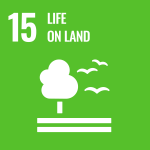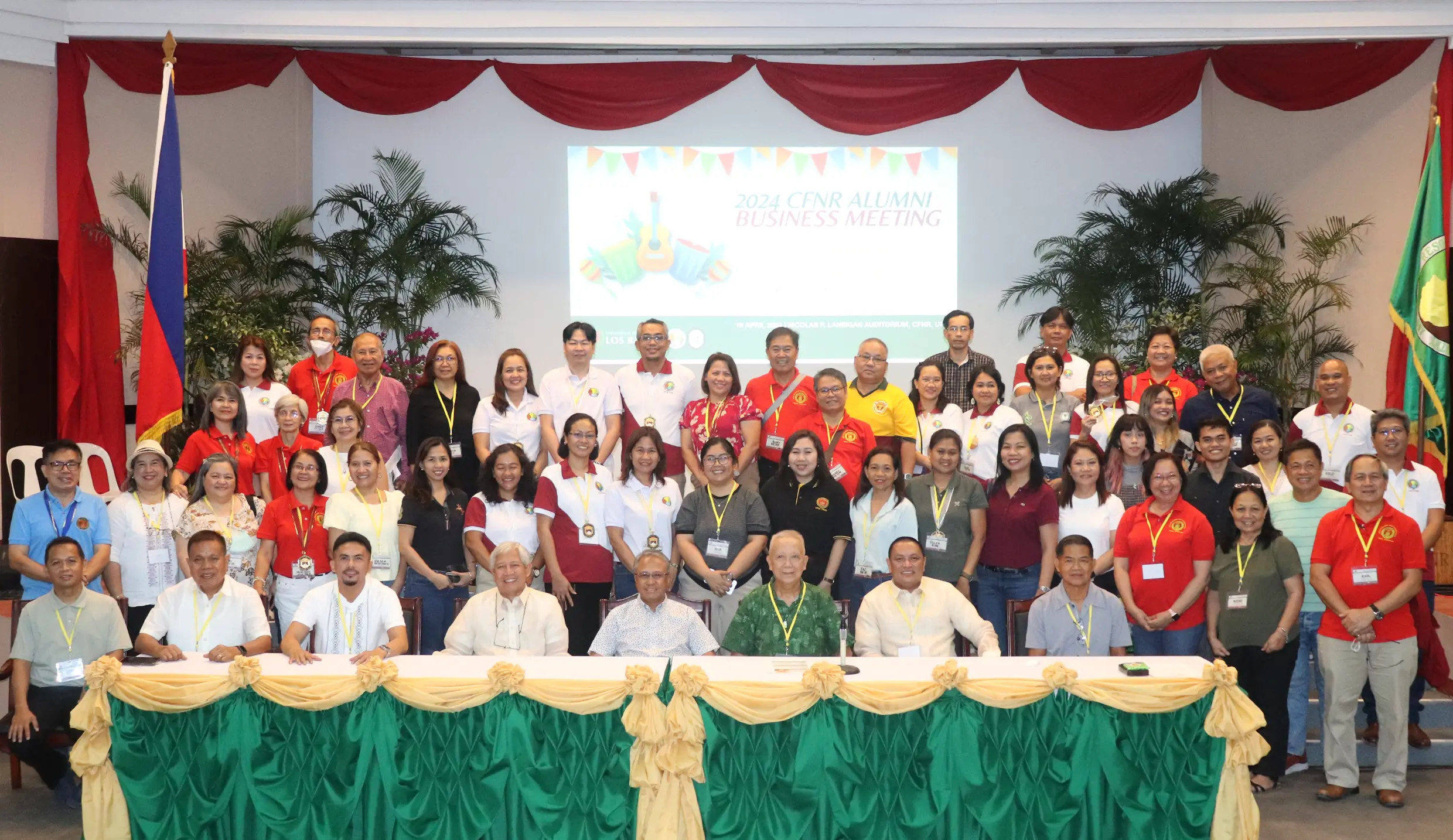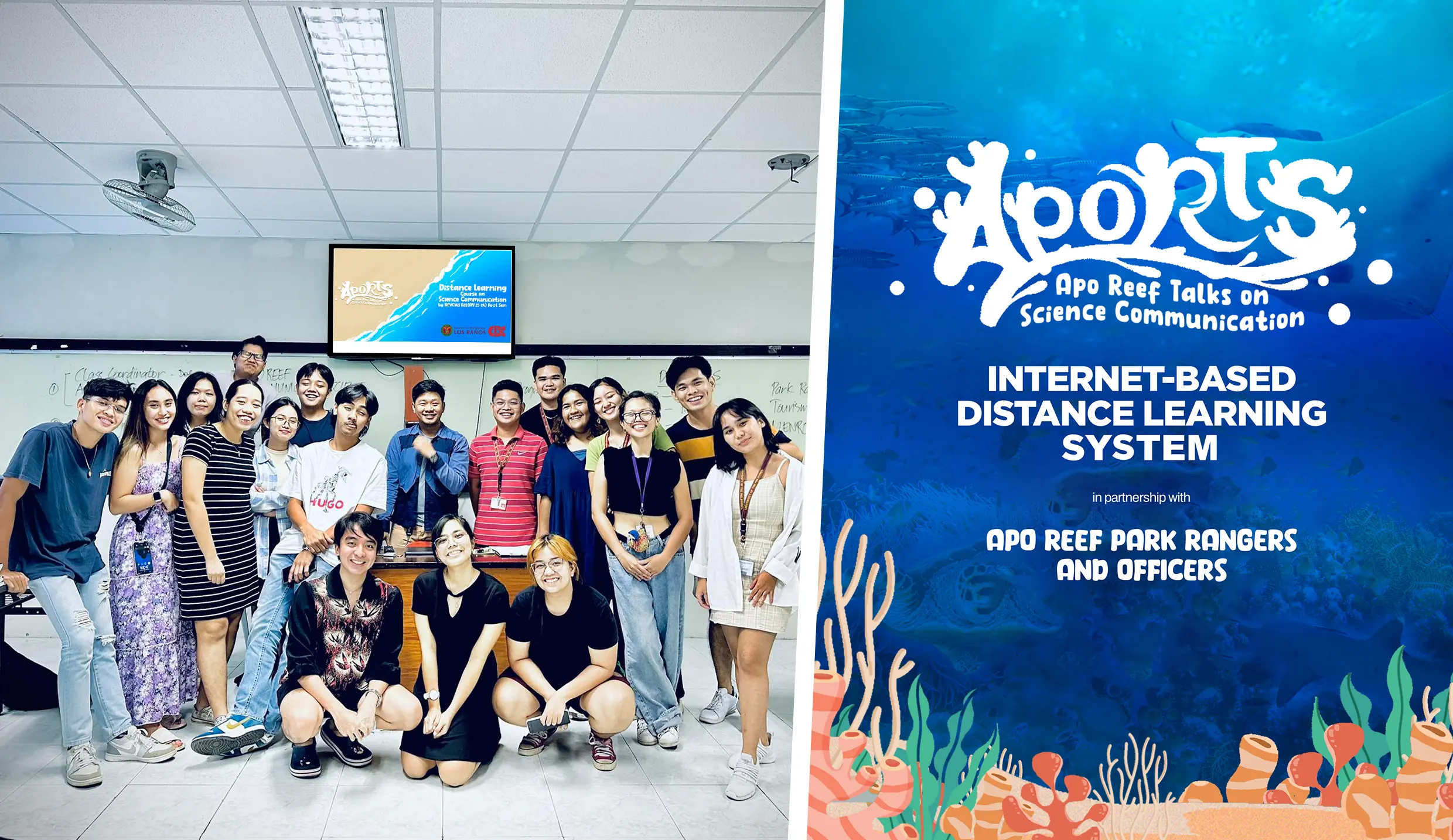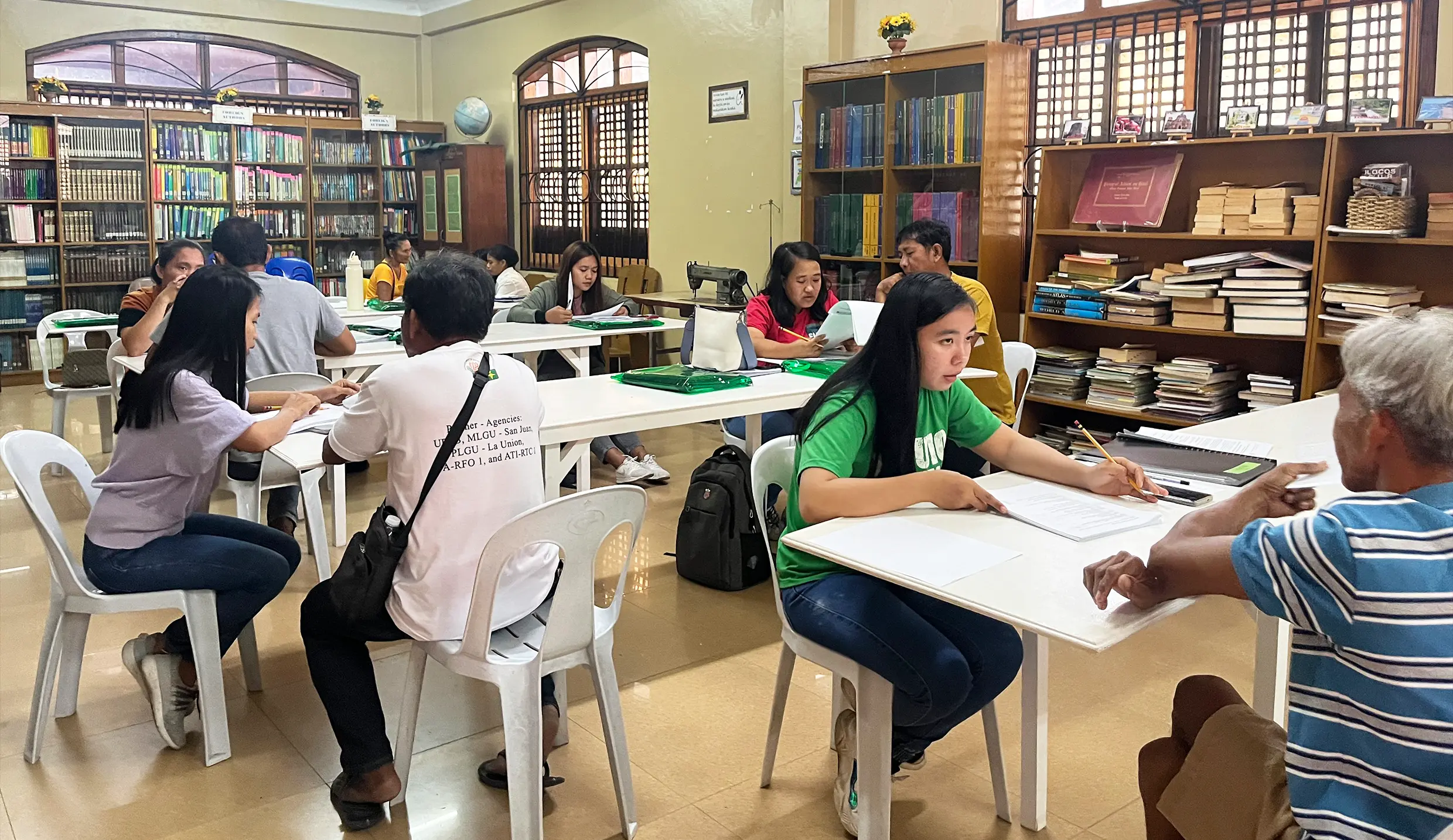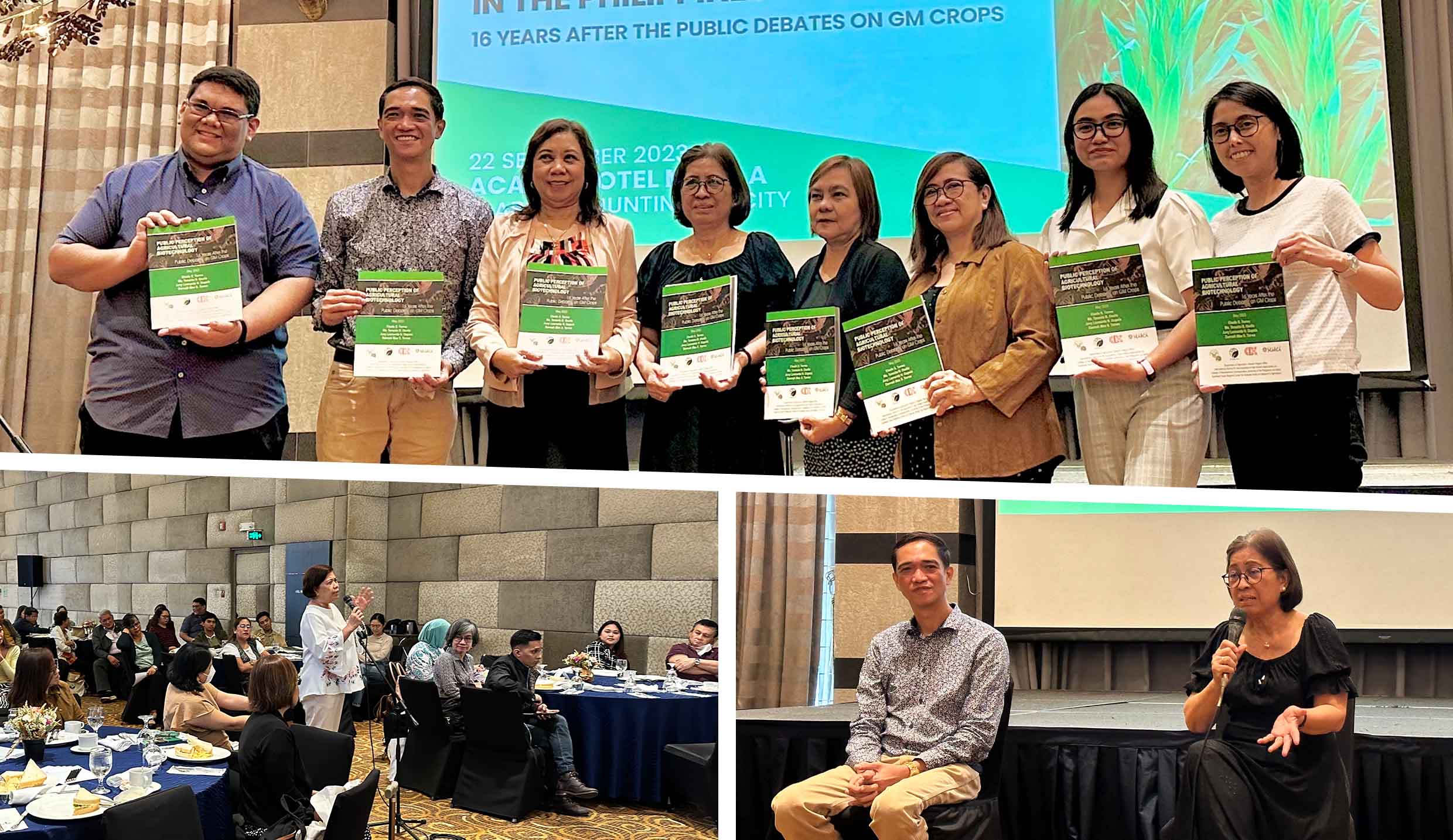
Scientists should use social media to fight misinformation on modern agricultural biotechnology.
This was one of the salient recommendations of a study conducted by the College of Development Communication (CDC) of UPLB and the International Service for the Acquisition of Agri-biotech Applications, Inc. (ISAAA) among 1,180 respondents from various stakeholder groups in the Philippines.
The research report was launched at the Acacia Hotel Manila in Muntinlupa City on September 22 and was attended by government, non-government, private, media organizations, and other stakeholders. It was also live-streamed on the ISAAA.org Facebook page.
Dr. Cleofe S. Torres, principal investigator and adjunct professor at CDC, presented the highlights of the study, “Revisiting Public Perception of Agri-biotechnology: 16 Years After the Public Debates on GM Crops.”
It found that the social media sites Facebook and YouTube were the most frequently used platforms by their respondents, while scientists were the most trusted sources of agri-biotech information. Hence, they called on scientists to actively reach out to the public by maximizing the use of social media to bring credible information and to bust agri-biotechnology myths.
During the open forum, the salient matters discussed were the potential of social media in the public understanding of agri-biotech and various communication strategies that could be used in educating the public, such as partnering with influencers or producing engaging short-form videos.
The findings of the study were initially presented at a forum held at the UPLB REDREC Auditorium on March 30, 2023, which showed that nine stakeholder groups from ten regions in the country were pro-agri-biotechnology despite negative assessment of it in the past years.
The study was funded by the Philippine Agriculture and Fisheries Biotechnology Program of the Department of Agriculture (DA) and is part of the “Know the Science Project” of ISAAA, the Southeast Asian Regional Center for Graduate Study and Research in Agriculture (SEARCA), and CDC. (Miguel Victor Durian)



